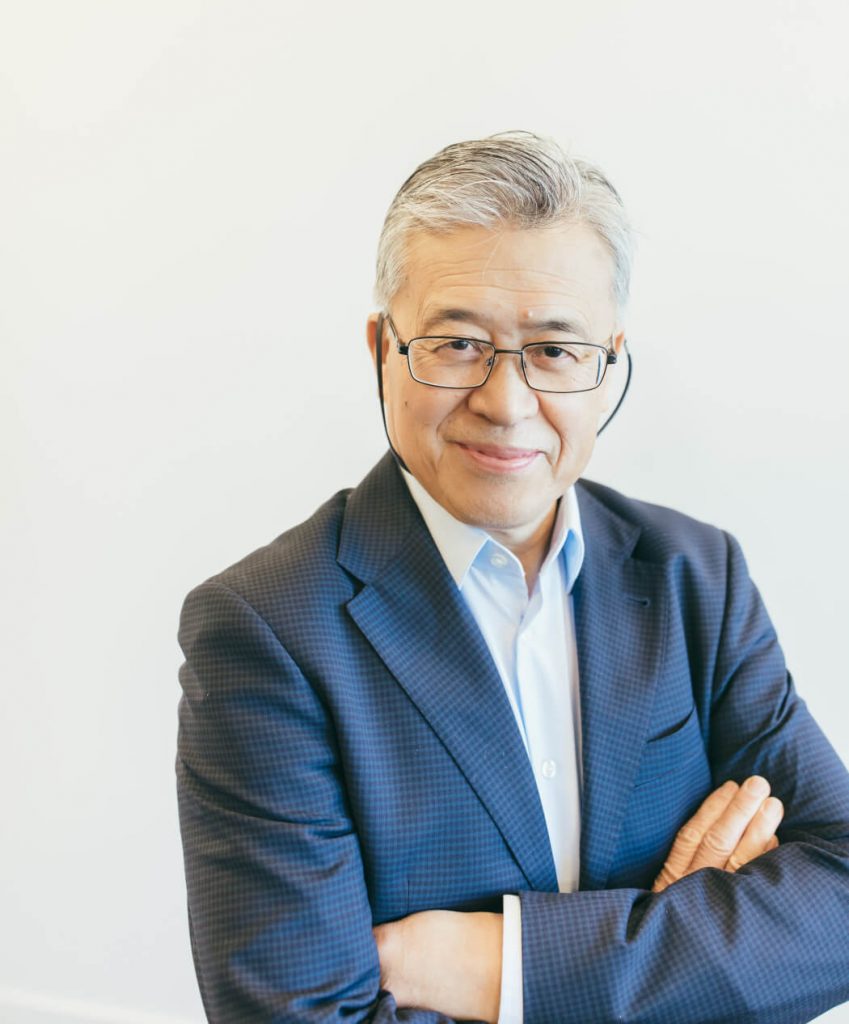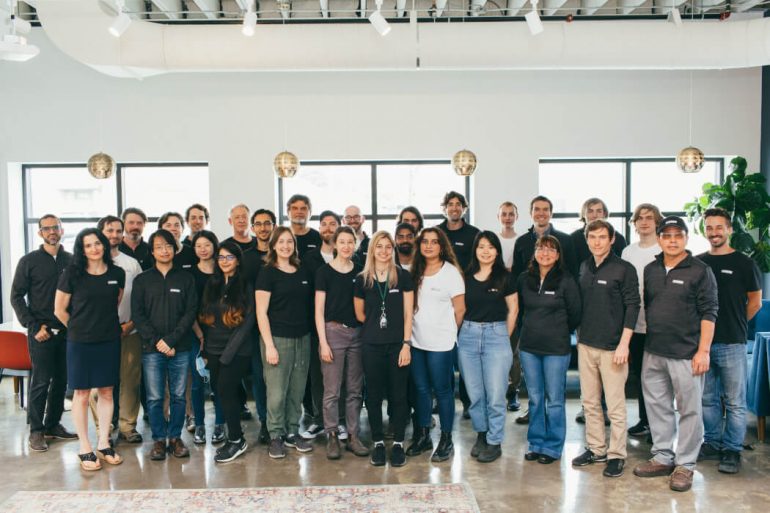Less than a year after suffering major setbacks and a personal tragedy, Toronto-based startup e-Zinc has raised over $31 million CAD ($25 million USD) in Series A financing to establish production capabilities for its zinc-based long-duration energy storage tech.
“Last August, we had two bad pieces of news,” e-Zinc CEO James Larsen told BetaKit in an interview. The first was the death of the company’s founder, Xiaoge “Gregory” Zhang, at 64, following a battle with cancer. The second was a fire at e-Zinc’s battery testing lab.
Larsen says the way e-Zinc has rebounded since Zhang’s passing and the lab fire “speaks to the commitment” and “tenacity” of its team.
Only two months afterwards, the company had already set up a new facility. “We were totally back on our feet and humming,” said Larsen, who added that the way e-Zinc has rebounded since then—including closing a big funding round and winning $1 million through Impact Canada’s Charging the Future Challenge—“speaks to the commitment” and “tenacity” of the startup’s team.
Zhang was a former senior scientist and R&D manager at Vancouver mining company Teck Resources, where some of his work focused on assessing zinc-based energy storage technologies. After leaving Teck, Zhang leveraged the expertise he developed there to launch e-Zinc in 2012.
Zhang retired in 2020 after handing the reins to Larsen to steer the company through its commercialization phase. In a LinkedIn post announcing Zhang’s death, Larsen described the e-Zinc founder as an “renowned scientist,” a “visionary” who identified the potential of zinc as an energy carrier, and a “impressively resourceful leader.”
With Zhang serving as an e-Zinc director at the time of his death, Larsen called his passing as “more of an emotional loss rather than an operational risk.” The CEO characterized the fire, which was determined to be the result of a faulty power bar, as “a stick in the spokes on the operational side.”
The August 2021 fire hit one of e-Zinc’s two facilities. To get back up and running, the company had to absorb all of its battery lab’s capacity into its manufacturing facility while also navigating the insurance claims process, a process Larsen described as “a logistical nightmare.”
RELATED: Moment Energy secures $3.5 million to repurpose retired electric vehicle batteries
e-Zinc (formerly known as e-Zn) has developed a zinc-based energy storage system that it claims “can be up to 80 percent less expensive than comparable lithium-ion systems for long-duration applications.” The company’s solution, which is capable of operating in both cold and hot climates, is made using abundant and recyclable materials.
Amid what Larsen describes as a “race” to develop long-duration energy storage options, the startup has secured backing from a group of strategic investors to manufacture its zinc-air battery solution for use in a couple of “major projects.”
e-Zinc’s Series A round was led by Anzu Partners with participation from BDC Capital’s Cleantech Practice, Toyota Ventures, and Eni Next, the corporate VC arm of Eni. The approximately $31.3 million CAD total consisted of nearly $29 million in new equity, and $2.3 million in previously announced convertible note financing from BDC that converted as part of this round. The capital brings e-Zinc’s total venture funding to $35 million. To date, the startup has also secured an additional $8 million in grants.
Larsen said e-Zinc plans to use the funding to execute its first commercial infield demonstration initiatives. To get there, the company has begun establishing a new, 42,000-square-foot manufacturing facility in Mississauga and doubling its 25-person team, which it hopes to accomplish by the end of 2022.

In the long-duration energy storage space, the two incumbent technologies are hydro and compressed air. Although both are commercial, Larsen says each have drawbacks. “Most notably, they need to be built at a massive scale,” he said. “They also can’t necessarily be put everywhere.” Pumped hydro, for instance, requires a specific topography to be affordable.
“There is a bit of a race right now with a bunch of different companies and different competing technologies to try and come up with [a] more versatile long duration energy storage system,” said Larsen. “There’s a number of pre-commercial technologies like e-Zinc and they range from electrochemical to perhaps gravity-based or mechanical, to thermal.
e-Zinc offers a competing solution on the electrochemical side of the long-duration energy storage equation. Amid increasing reliance on renewable energy, e-Zinc has seen demand rise for long-duration energy storage assets that make renewable energy assets more reliable and resilient.
RELATED: General Fusion powers up with $166 million CAD round for its energy technology
To start, e-Zinc is targeting the backup power market. In short, the company sees a chance to replace diesel generators as a form of backup power for vulnerable customers like data centres, hospitals, and remote communities. Longer term, the company plans to tackle even more remote applications as a replacement for diesel (coupled with renewables) for off-grid customers and mining facilities.
Washington-based Anzu Partners focuses on industrial technology, with a list of interests that includes cleantech. The VC firm says it has previously made “significant” investments in the lithium-ion space, but prior to leading e-Zinc’s Series A round, hadn’t backed any companies operating in the long-duration storage market.
Anzu Partners Senior Associate Henk Both told BetaKit the firm encountered e-Zinc when it started to explore the long-duration storage space, and was particularly excited by the amount the company had been able to secure in grant funding.
RELATED: Ecobee aims to leverage Generac’s energy products, global presence post-acquisition
“We were really, really impressed with James and the team, as well as the architecture of the technology that they’re developing,” said Both, who cited the cheap cost of Zinc and the versatility of e-Zinc’s system as key draws. “When we compared [it] against all the other technologies … we found that it had a very compelling value proposition in terms of allowing a very flexible deployment scale.”
According to Larsen, there are some other companies in the space that are also working with zinc, but e-Zinc’s approach, which involves decoupling power from energy to scale energy capacity independently from power, is “very unique.”
Larsen described the company’s investors as “quite complementary,” adding that he expects Toyota Ventures—through Toyota—will provide e-Zinc with support “upstream” on the supply chain and manufacturing front, while having Eni Next’s support presents an “incredible amount of deployment opportunities on the downstream” side for e-Zinc through Eni.
Feature image courtesy e-Zinc.


